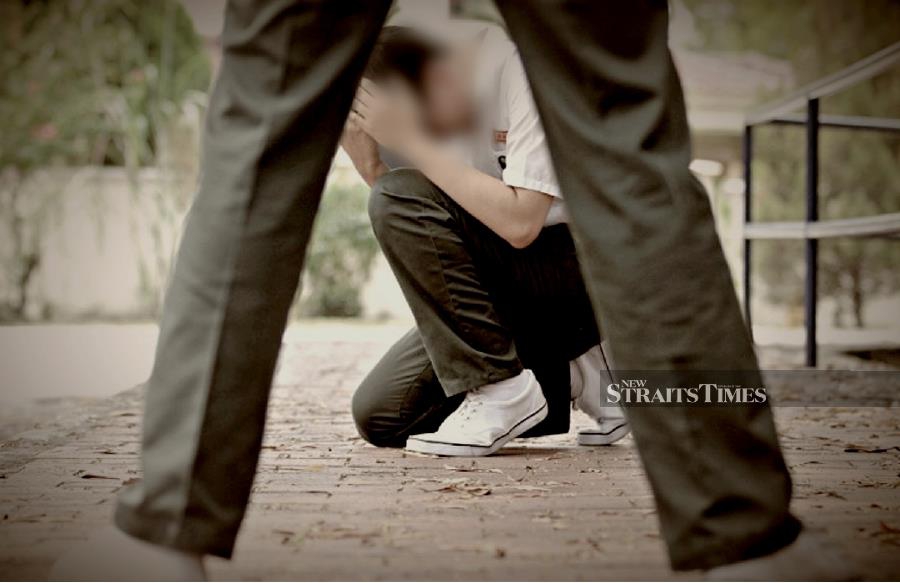IT has been only weeks since the trial of bullies at the National Defence University was concluded. Because the victim of the bullying died, newspapers were reporting of the possibility of mandatory death for some.
The public perception was one of murder. But, the sentences handed out to the 18 cadets accused were of culpable homicide not amounting to murder. Those charged under Section 304 then escaped mandatory death.
Now, even as the case of navy cadet Zulfarhan Osman Zulkarnain is still fresh in our minds, another bullying case in a boarding school, a Maktab Sains Rendah Mara (MSRM) has surfaced.
This time the bullies are much younger, 13 years old. The victim, who was violently boxed in the abdomen and also kicked, suffered soft tissue injury. And, we are thankful that, fortunately, the victim is still alive. The police are already on the case.
But, what is worrying is the sense that because the bullies are young, the powers that be, as adults, may feel too much empathy for these youngsters who are obviously dangerous.
Indeed, a humanitarian approach of meeting the criminal with kindness seems appropriate. It is presumed that the bullies are themselves victims of some kind of brutalisation. Maybe so, but do they deserve to get away with murder?
There is a need to imprint in the minds of the young that violence perpetrated on others is a crime and the perpetrator, a criminal. Such harsh labels may just get the message home that there is nothing funny or amusing about bullying. Only by such harsh labels can youngsters see the evil intrinsic in the act.
Corporal punishment at home makes a child oblivious to the dangers of violence. In fact, surviving beatings at home for some youngsters only build their tolerance to violence, they become tough. And, if violence at the hands of parents are acceptable why should it be any different for them?
While the solutions proposed include terrifying suggestions of prison wardens as discipline teachers at boarding schools, suggesting a repeat of violence as solution, this merely means the institutionalising of violence as a solution to violence, thus giving it a sense of respectability.
Rather, parents and children must be made to perceive bullying as a crime and these children might find a stretch at schools like Henry Gurney School, to care for young offenders, beneficial. It was set up under the Juvenile Courts Act 1947 (Act 90). Set up in 1950, the school was initially known as High Moral School. Therein is the clear pointer of the root cause of bullying, a lack of moral awareness.
Accepting that as a truth, a bully must in all probability be in an environment where morality is an alien concept. From this inference, the obvious cannot be ignored. The child's background nurtures the instinct to harm others as a way to some kind of glory, especially for the leader of the gang.
Therefore, it is only right that parents and guardians must take responsibility for their children's criminal instincts. Yes, it is an intrusion in a family's privacy but somebody must be held responsible for the bully, who is also a victim of his circumstances.
The bully is a young person very much the product of adverse parenting. Is it possible that a bully might come from a perfectly respectable family? It is important that parents be made aware of this stigma.
A bully tarnishes his or her parents dignity, too. When families are aware of such social stigma, then maybe the child will be taught to stay in line. Parents of bullies, too, should be held accountable and pay for their carelessness.
After all, love should not take destructive forms. Spoiling a child in the name of love is a sin. And, of course, victims of bullying cannot be silent. Victims must have easy access to redress. In schools, teachers must be more amenable and caring. At home, parents must pay attention to their children's state of mind.
Bullying is a crime and bullies are juvenile delinquents. Inasmuch as the victims' suffering is a burden that might stretch well into the future, the punishment must reflect a similar trauma to the bully. This may sound harsh but years of humane efforts to end bullying has done little to stop it.
The author is former NST Leader writer



